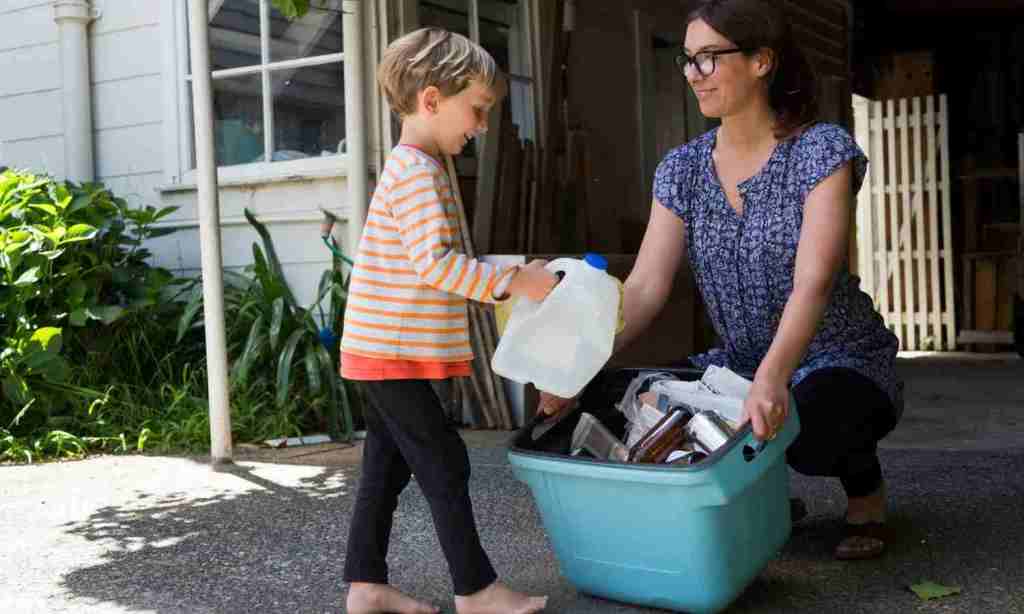The Latch has partnered with Suncorp Bank to deliver the sustainability content you need when figuring out what you can do to drive real climate action.
The importance of teaching our kids how to recycle from a young age is clear. As parents, we set our kids up for success and creating a routine around waste disposal, food excess and recycling methods is an extension of this. The tricky part of this is explaining the whys and hows behind this basic tenant of sustainability, of which recycling is a core pillar. As with any conversation about sustainability, it is important to set the tone with your child that sustainability is a continuous and consistent journey and not one that can be won overnight.
It is paramount to cultivate an understanding of the long-term efforts and habits of recycling with positive reinforcements. Here are some of our suggestions to effectively teach your kids about recycling.
Lead By Example
“The apple doesn’t fall far from the tree” is a common adage that refers to the way children behave much like their parents. This sentiment holds true, especially in the case of teaching them good habits as a child.
As parents, we should aim to be role models to our kids and lead by example with recycling and reducing food waste. One simple way to teach them is to take time to explain why you are packing leftovers up for later versus throwing them away. Children are keen observers and listeners and they’re quick to pick up words and behaviours they see repeated in their homes or in their environments.
Making a conscious effort to bring along your children to recycling centres, or engaging them in the sorting out of plastics, paper, glass and other materials in the home is one way to engage them from a young age.
Start Small
No action is ever too small when it comes to making a positive change — every action counts. Start by explaining what the numbers on the bottom of their favourite squeeze packs mean, or maybe what the coloured bins they pass on the way to school are for. Simply speaking about them is a great way to get the ball rolling.
Child psychologists suggest rooting behaviour change in everyday behaviour. Start small, by explaining the materials of snack wrappers, old toys or anything they have outgrown. Instead of simply ‘donating’ or ‘throwing it away’, use this opportunity to educate your child on the materials used in the production of the items, or maybe the possible ways the item could be reused in future.
Related: 6 Genius Ways You Can Re-Use Plastic Berry Packets
Using simple, straightforward, non-fearful language like, “this could be useful” or “this could help” are some positive ways to educate your child on recycling the smallest things in the house.
Make it Fun
Let’s be honest, kids are unlikely to do anything they don’t find fun. They dread boring talks or activities that don’t properly engage them, and they retain much less of this information in the long run.
One sure-fire way to engage kids in the recycling process is to gamify the process by awarding them points or good behaviour treats for doing tasks related to recycling. However, there are some downsides to just doing this as it might incentivise their behaviour for the reward of recycling rather than the action itself.
Related: 5 of the Easiest Vegetables to Grow In an At-Home Patch
It’s easier to focus on what your child is interested in and narrow down on that. For example, if your child enjoys playing with blocks and building, you could create a game to use up all the saved cardboard and paper in the house to create a castle. The process of creating the castle with different materials is a useful prompt for explaining the different types of paper and where the materials could go when recycled.
Read more stories from The Latch and subscribe to our email newsletter.







